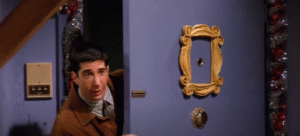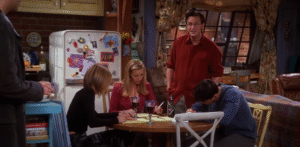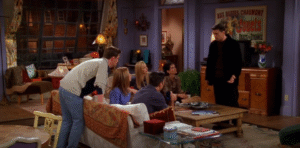Past Perfect
Past Perfect: O Guia Definitivo Para Dominar Este Tempo Verbal
Você já se confundiu tentando falar sobre duas ações no passado? O Past Perfect é a chave para expressar claramente qual ação aconteceu primeiro! Este tempo verbal é essencial para contar histórias e relatar experiências de forma precisa.
Neste guia completo, você vai aprender tudo sobre o Past Perfect de maneira simples e prática. Prepare-se para finalmente entender como organizar eventos no passado!
O Que É o Past Perfect?
O Past Perfect é um tempo verbal que expressa uma ação que foi completada antes de outra ação no passado. É como se fosse o “passado do passado”!
Imagine esta situação: você chegou na festa às 9h, mas a festa já tinha começado às 8h. A festa começou ANTES de você chegar. Para expressar isso, usamos o Past Perfect:
“The party had already started when I arrived.”
Como Formar o Past Perfect
Estrutura Básica
Sujeito + had + particípio passado do verbo
A boa notícia é que o Past Perfect usa apenas “had” para todas as pessoas (I, you, he, she, it, we, they).
Frases Afirmativas
Sujeito + had + particípio passado
Exemplos:
- I had finished my homework before dinner.
- She had lived in Paris for five years.
- They had already left when we arrived.
Frases Negativas
Sujeito + had + not + particípio passado
Exemplos:
- I hadn’t seen that movie before.
- He hadn’t studied English before moving to Canada.
- We hadn’t met before yesterday.
Frases Interrogativas
Had + sujeito + particípio passado?
Exemplos:
- Had you finished your work when I called?
- Had she ever traveled abroad before?
- Had they lived there long?
Quer dominar a formação de frases em Past Perfect? Minhas aulas incluem exercícios práticos com feedback personalizado para você nunca mais errar!
Quando Usar o Past Perfect
1. Ação Completada Antes de Outra Ação no Passado
Esta é a função principal do Past Perfect. Use quando quiser mostrar que uma ação aconteceu antes de outra no passado.
Exemplos:
- I had already eaten when she called. (Comi primeiro, depois ela ligou)
- The movie had started when we arrived at the cinema. (O filme começou primeiro, depois chegamos)
2. Experiências Até Um Ponto no Passado
Use para falar sobre experiências que alguém teve até um momento específico no passado.
Exemplos:
- By 2020, I had visited ten countries. (Até 2020, eu já tinha visitado dez países)
- She had never flown before that trip. (Ela nunca tinha voado antes daquela viagem)
3. Causa e Consequência no Passado
Use para explicar a causa de algo que aconteceu no passado.
Exemplos:
- I was tired because I had worked all day. (Estava cansado porque tinha trabalhado o dia todo)
- She was happy because she had passed the exam. (Ela estava feliz porque tinha passado no exame)
Palavras-Chave do Past Perfect
Certas palavras e expressões são comumente usadas com o Past Perfect:
Expressões de Tempo
- Already (já)
- Just (acabou de)
- Never (nunca)
- Ever (alguma vez)
- Before (antes)
- After (depois)
- By the time (quando/no momento em que)
Exemplos Práticos:
- She had already left when I arrived.
- I had just finished cooking when they came.
- He had never seen snow before moving to Canada.
Dominar essas palavras-chave é fundamental! Em minhas aulas, você aprende como usar cada uma naturalmente em conversas reais.
Past Perfect vs Simple Past
Esta é uma das maiores dúvidas! Vamos esclarecer:
Past Perfect
- Ação que aconteceu primeiro no passado
- Enfatiza a sequência dos eventos
- Exemplo: “I had studied before the test.” (Estudei primeiro, depois fiz o teste)
Simple Past
- Ação que aconteceu depois no passado
- Narra eventos em ordem cronológica
- Exemplo: “I studied and then took the test.” (Estudei e então fiz o teste)
Comparação Prática
Situação: João chegou às 8h. A reunião começou às 7h.
- Past Perfect: “The meeting had started when João arrived.” (Reunião começou primeiro)
- Simple Past: “The meeting started at 7h and João arrived at 8h.” (Ordem cronológica)
Expressões Úteis com Past Perfect
Para Contar Histórias
- “I had never seen anything like that before.”
- “She had always wanted to visit that place.”
- “We had been friends for years.”
Para Explicar Situações
- “I was late because I had missed the bus.”
- “She was excited because she had gotten the job.”
- “They were tired because they had traveled all night.”
Para Falar de Experiências
- “By age 25, I had graduated from university.”
- “She had lived in three countries by then.”
- “We had never tried sushi before that day.”
Verbos Irregulares Importantes
O Past Perfect usa o particípio passado dos verbos. Aqui estão alguns verbos irregulares essenciais:
Verbos Mais Comuns
- Go → had gone
- See → had seen
- Do → had done
- Have → had had
- Be → had been
- Get → had gotten/got
- Make → had made
- Take → had taken
Exemplos em Contexto:
- I had gone to the store before it closed.
- She had seen that movie three times.
- They had been married for ten years.
Precisa memorizar mais verbos irregulares? Minhas aulas incluem listas organizadas e técnicas de memorização eficazes!
Erros Comuns e Como Evitá-los
Erro 1: Usar Past Perfect Desnecessariamente
❌ Yesterday, I had gone to the store. ✅ Yesterday, I went to the store.
Use Past Perfect apenas quando há duas ações no passado e você quer mostrar qual aconteceu primeiro.
Erro 2: Confundir a Ordem dos Eventos
❌ I had dinner after I had watched TV. ✅ I had watched TV before I had dinner.
Erro 3: Esquecer o Particípio Passado
❌ She had go to work early. ✅ She had gone to work early.
Estruturas Avançadas com Past Perfect
Past Perfect + When/Before/After
Padrão: Past Perfect + when + Simple Past
Exemplos:
- I had already left when she called.
- She had finished her work before the meeting started.
- After we had eaten, we went for a walk.
Past Perfect + By the Time
Padrão: By the time + Simple Past, Past Perfect
Exemplos:
- By the time I arrived, the show had ended.
- By the time she woke up, he had already left.
Past Perfect em Reported Speech
Use Past Perfect para relatar o que alguém disse:
Direto: “I finished my homework.” Indireto: She said she had finished her homework.
Quer dominar essas estruturas avançadas? Minhas aulas oferecem exercícios específicos para cada padrão!
Exercícios Práticos Para Fixar
Complete as Frases:
- When I arrived, the meeting _______ (start).
- She was upset because she _______ (lose) her keys.
- By 2019, they _______ (live) in Tokyo for five years.
Respostas:
- had started
- had lost
- had lived
Ordene os Eventos:
Situação: Maria estudou das 7h às 9h. O filme começou às 8h.
Resposta: Maria had been studying for an hour when the movie started.
Transforme em Past Perfect:
- I ate breakfast. Then I went to work.
- She studied hard. Then she passed the exam.
- They saved money. Then they bought a house.
Respostas:
- I had eaten breakfast before I went to work.
- She had studied hard before she passed the exam.
- They had saved money before they bought a house.
Dicas Para Praticar Past Perfect
1. Conte Sua História
Pense em eventos da sua vida e organize-os usando Past Perfect:
- “Before I started learning English, I had never spoken to a foreigner.”
- “By the time I graduated, I had already decided my career path.”
2. Use Marcadores Temporais
Sempre inclua expressões que mostrem a sequência:
- “I had finished my work before the deadline.”
- “She had already left when I called.”
3. Pratique com Filmes e Livros
Observe como autores usam Past Perfect para contar histórias:
- “He had never seen such a beautiful sunset before.”
- “She had always dreamed of visiting that place.”
Quer acelerar seu aprendizado? Minhas aulas online oferecem exercícios interativos baseados em situações reais!
Past Perfect Continuous
Para expressar a duração de uma ação que continuou até um ponto no passado, use Past Perfect Continuous:
Estrutura: had + been + verb-ing
Exemplos:
- I had been studying for two hours when she called.
- They had been living there for ten years before they moved.
Contextos Específicos de Uso
1. Narrativas e Histórias
- “Once upon a time, there was a princess who had lost her crown.”
- “The detective realized the suspect had been lying.”
2. Notícias e Relatos
- “The company announced that profits had increased by 20%.”
- “Police reported that the suspect had escaped.”
3. Conversas Informais
- “I was so tired because I had worked overtime.”
- “She was happy because she had gotten good news.”








Publicar comentário